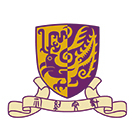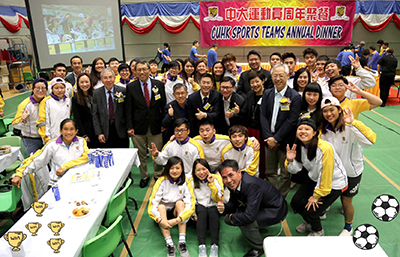



  




 



 
|
| 28. 04. 2019 ISSUE 18 | |||
|
|
Foreword |
|||
|
Dear readers, On 17 April, I attended the CUHK Sports Team Annual Dinner in which more than 400 student athletes turned up to celebrate their championships received and excellent performance in inter-university sports competitions. The triumphant laughter, great pride and sheer sportsmanship displayed in the event have lingered for a long while in my mind. I found it out of the blue that these young adults had shown much reverence for their coaches and team managers. They looked willing and accustomed to attribute their achievements to those who had guided them to pursue sports. Many of them expressed immense gratitude to their athletic mentors openly. The song "Happy Birthday to You" sung along with the cheers and whistles by one team after another to the birthday person, who had trained mainly soccer players, rent the air of Yeung Ming Biu Indoor Sports Centre where the dinner took place. It is widely known that doing sports offers many personal and social advantages. They include the development of physical fitness, building up of self-esteem and endurance, and enhancement of relationship opportunities, etc. When chewing over the boom or bane of team sports in particular, the former usually overtakes the later because of the collaborative skills to be acquired by every player. Collaborative skills are very helpful in many careers that demand workers to focus on shared values, get into effective communication and discharge duties through challenges. Fine collaboration also engenders a sense of respect for others e.g. teammates, rivals and, above all, teachers. For young people, doing sports regularly can reduce the amount of idle time that will likely coax them into excessive use of social media. Some current researches reveal that online bullying and sleep disruption resulted from the misapplication of social media are to blame for a range of mental health problems (e.g. anxiety and depression) of college students. Sports is a stress relief for them due to the endorphins generated through exercising. Inevitably there is the chicken and egg question, as to whether young people are addicted to social media then their timetable for sports has been derailed. I am not blind to the stand that doing sports regularly will solve all problems pertaining to the low mood of our students, but this is a handy way in view of the spatial privilege of the CUHK campus. Just exploring the splendid sights of our university on foot instead of getting straight onto the school bus is the easiest way to be engaged in exercises. Availing ourselves of the recommended walking trails inside the campus can also be a healthy physical activity. In fact, the wide variety of sports activities and amenities hosted by different university units serves as the driving factor in our action to exercise. This Centre has long supported this bid via its sports initiatives e.g. the "Fitness x Mentorship" Scheme. I barely do sports. Given its innumerable benefits, I am going to take up some keep-fit exercises. Will you join the ranks of me? Sincerely yours, Irene Ng |
|
||
|
|
|||
|
Past Issue
| |
|
|
|
|
|
